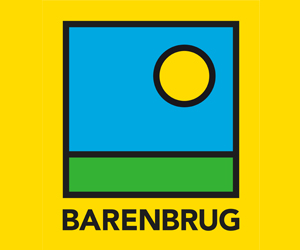How to develop and create great teams
How to develop and create great teams: Master Greenkeeper Phil Helmn’s book ‘The Power of People’ looks at the strengths of effective leadership. Here’s an exclusive extract.
Talking about leadership strategies and styles can quickly become a bit ambiguous. It’s difficult to say exactly how each different strategy effect individuals or teams, however, it’s widely recognised that the old authoritative or draconian leadership styles have become understandably less popular in today’s modern world.

How to develop and create great teams
The important thing to keep in mind is that your role as leader is to influence, engage, and encourage people into action around a common goal. As a human being, leaders are just like everyone else, the same as any team member on the ‘coal face’. The initial thing to remember, as a leader, is that everyone has different personalities and as such, communication must be different. By adapting your message delivery style, fine tuning your communication, and using tried and tested management processes you will significantly increase your chances of helping lead your team to greater success. Team management and leadership focusses on the ability to administer and coordinate a group of individuals to perform a task. Team management involves teamwork, communication, objective setting, and performance appraisals. Moreover, team management is the capability to identify problems and resolve conflicts within a team. The method and style I have used to great effect and one which, if adopted, can increase productivity, improve efficiency and create strength and dynamics to your team is to build a strong foundation based around four key pillars.
Clarity
Define and communicate the team vision. Understanding the vision brings teams together under a common goal. They’re not simply working but performing together toward something. Something that is big and exciting!
Competence
Commit to continued education which develops continued growth and refinement through continued learning, practical application of skills, and networking both internally and externally.
Communication
Speak from the heart when communicating. Teams are motivated when leaders are passionately engaged in the team’s vision, mission, and goals.
Culture
Perhaps the best culture strategy and engagement tool for your team is to empower them by delegating greater responsibility. Finding areas which can be delegated creates responsibility and, importantly, creates the authority to get things done which builds an enormous sense of self-worth.
Leaders aim to practically manage teams in a multitude of ways by focusing on the following:

How to develop and create great teams
• Standardise operating procedures, keeping them consistent and simple. This is maintained by regular team meetings, with standard agendas and keeping open lines of communication from top to bottom and equally important bottom to top!
• Be present at key times in the team’s schedule. Be visible at breaks, lunches, team meetings and social gatherings to maintain contact with everyone.
• Know your team and tackle problems quickly. Even though our managerial challenges are important you must value the individual’s issues and appreciate no matter how trivial they may appear they are especially important to them. It’s also of the utmost importance to never promise on something you cannot deliver.
• Encourage feedback. Feedback is one of the cornerstones of improvement. You must nurture an environment where feedback is encouraged and is accepted as a means to progress.
• Delegate. With multi-functional team’s, it’s vital to delegate. Having a good culture means delegation is possible born through empowerment at all levels.
• Make communication and sharing of information a priority. The communication pillar can be the biggest influence on team culture and success. Individuals at all levels appreciate communication and by making time within the working environment to facilitate conversations is vital to sharing information.












